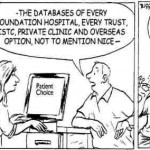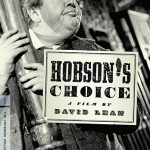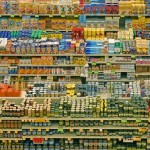This is a blog about the culture of secrecy and confusion associated with competition in what are intended to be open markets, and how it’s us, the poor old consumers, who always lose out.
But if choice is supposedly desirable, consider this: a recent piece of research conducted on behalf of a supermarket chain presented two groups of consumers with a range of products. I think it was shampoos, but it doesn’t really matter what, it’s the principle that counts. One group was given a choice of 5 brands, the other 20 brands. Surprise surprise, the group given fewer products to choose between actually bought more of the product than those with the greater choice.
How can this be, when consumer groups and government are forever telling us that people want, nay demand more more choice and that the competition will make us better off. In some cases this may be true, but often it is not, for a number of reasons, of which more later.
The bottom line is that choice is often an illusion, a mirage. The closer you look, the more you realise that you don’t actually have anything like as many choices as you think you have. In fact, while we have decisions to make many times in every day, the choice you make is often no better or worse than any other selection, so an “informed choice” may well be a misnomer – it might be whether you prefer a logo in red or blue. Often, you have no way of knowing which, if any, will choose to be the best, and it may ultimately be “Hobson’s Choice” – that you had no choice at all in reality.
For example, we know the energy market is one of eternally rising costs as the country tries to grapple with declining sources and the need for a carbon-free footprint. We are urged to switch suppliers to keep our bills down, though since the “Big six” utility companies who control 99% of our market are in the habit of moving their prices up en masse, all but a few days here and there, we have to face the reality that the energy market is an oligopoly (seen in its best light) or a cartel (which is far nearer the mark.)
If you follow the economics textbook, you’ll also know that “perfect competition” depends on “perfect knowledge” by all consumers of all products and prices on the market, which is patently not true in the real world. Gas and electricity tariffs are created in such a way to bamboozle us and ensure they are never comparing like with like. So even the price comparison sites don’t stand any earthly, and frequently come up with different results for the same set of information. Genuine competition, my foot!
The more markets you look at, the more you realise that there is no simple choice with one supplier clearly the cheapest. It’s all bound up in the small print and charges for all manner of things. The more complex they make it, the less choice the consumer truly has, and the more people use silly TV ads and other factors to choose suppliers.
Think I’m wrong? Apparently the Esure ads with the detestable and irritating Michael Winner won the company a lot more business. Had I not already been a customer I would certainly not have been won over by that means, and have since kicked Esure into touch for one simple reason: they were way more expensive than other companies, but to find that I had to do a few hours of research. At no point are prices accessible simply and fairly – you have to give them your details first, and end up on the receiving end of all the hype of the marketing machine thereafter.
Then we come to supermarkets. You will know I am not a fan of supermarkets anyway, but the forms of competition they adopt are scarcely designed to enlighten the consumer. They adopt every trick in the book to hook you, make you buy and then keep you buying in spite of huge price hikes. They advertise a few sample price cuts and baskets of carefully-chosen items, but never tell you about the many huge price rises. If they were forced to give equal exposure to products increasing in price, we would have way fewer supermarket ads, to be sure!
So the stark choice is this: have too few competitors and they will act in concert in their own interests and thumb their respective noses at the customer; have too many and we have no idea what to buy, it’s way too confusing. Regulation has not kept pace or made life any easier, and regulators and the ombudsman service don’t seem to have improved matters any. “Free” markets are never truly free, they are forever in chains and don’t present a clear decision about choosing the best or most appropriate product representing the best value for money.





